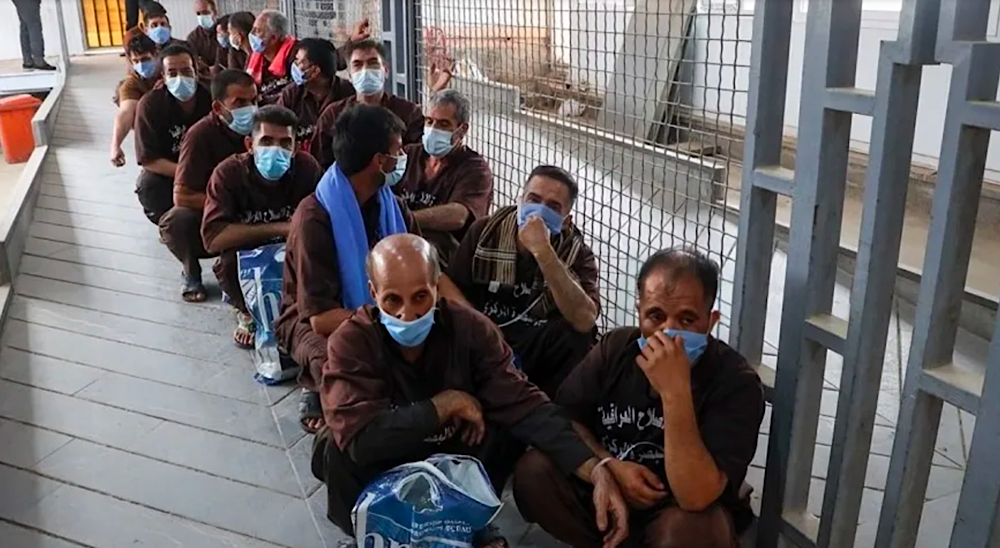Cecilia Sala and the thousands of 'forgotten' foreigners in Iranian prisons
Westerners jailed by the Islamic Republic, who are rightly an international issue, are but a fraction of the more than 8,000 non-Iranians jailed in Iran, 95 per cent of them migrants from Afghanistan. More than 70 Afghans were hanged in 2024. Other countries of origin of prisoners include Pakistan, Iraq, Turkey, Azerbaijan and India.
Tehran (AsiaNews) – The story of Italian journalist Cecilia Sala has made "hostage diplomacy" front page news again.
Arrested in Iran on generic charges, Ms Sala’s family is worried about the conditions in which she is being held, this despite reassurances from Iranian authorities.
The Islamic Republic has used this practice since it was established, with the seizure of the US embassy and the kidnapping of 52 American diplomats inside, held captive from 4 November 1979 to 20 January 1981.
Since then, Iran has continued to carry out arbitrary arrests, often involving journalists, like Roxana Saberi, an American citizen held in prison from January to May 2009. After she was convicted on "espionage" charges, her sentence was later reduced and eventually suspended.
At present, "only" six Westerners are in Iranian jails, out of more than 8,000 foreign prisoners, most of them Afghans. Most non-Iranians sentenced to death and hanged are from Afghanistan.
Experts note that, starting with the US hostage crisis, the Islamic Republic has held foreigners, including Westerners, for long periods, using them as a bargaining chip with their governments and in relations with other countries.
According to Human Rights Watch, “Iranian authorities have violated detainees' due process rights and carried out a pattern of politically motivated arrests of foreigners and Iranians with dual citizenship.”
In addition to the Italian journalist, Westerners currently held in Iranian prisons include: Nazak Afshar, a French citizen, held since 12 March 2016; Iranian-Swedish doctor Ahmad Reza Djalali, arrested in April 2016 and sentenced to death for espionage and treason; Iranian-Canadian Abdolrasoul Dorri-Esfahani, convicted of espionage and in prison since August 2016; German Nahid Taghavi, in prison since 2020, and Mehran Raoof, from the United Kingdom.
Kurdish activist Afshin Sheikholeslami Vatani (since 2020) and Shahab Dalili (since 2016) are among Iranians with permanent residence in the United States currently in prison in Iran.
Their stories are a source of concern for public opinion in their own countries and their respective governments, but they represent only a fraction of the foreigners detained by the Islamic Republic.
In fact, most of the 8,000 foreigners held in Iran come from Afghanistan (about 95 per cent, according to official data).
Tehran is looking to start negotiations with its neighbour to allow convicts to serve their sentence in their home country. However, “infrastructural weaknesses" in Afghanistan and a legal system judged unsuitable even by Iranian authorities are hindering their return.
Drug trafficking, theft and irregular border crossing are among the usual charges against Afghans. Next, among imprisoned foreigners, are the citizens of Pakistan, Iraq, Turkey, Azerbaijan and India.
Afghans also hold the unenviable record of the highest number of foreigners ending up in the hands of the hangman in Iran. In 2024 alone, more than 70 Afghans were executed, up by 300 per cent over the previous year, this according to the Iran Human Rights Organisation.
The increase follows the Taliban’s return to power in Afghanistan in 2021: 16 in 2022, 25 in 2023, and 72 in the first 11 months of 2024. Most people are executed for drug-related offences, and most executions are carried out at Qezel Hesar Central Prison.
Legal experts, who attribute the jump in executions to the absence of a legitimate and accountable government in Kabul, argue that Iran is exploiting the power vacuum in Afghanistan to speed up hangings of Afghan citizens, against a backdrop of impunity and strained relations between the two countries.
This has led to renewed appeals by human rights groups, who continue to call on both the Taliban and international legal organisations to address the plight of Afghan migrants and prisoners in the Islamic Republic.
24/01/2007
28/03/2007
17/10/2022 12:48
16/06/2018 09:00







.png)










